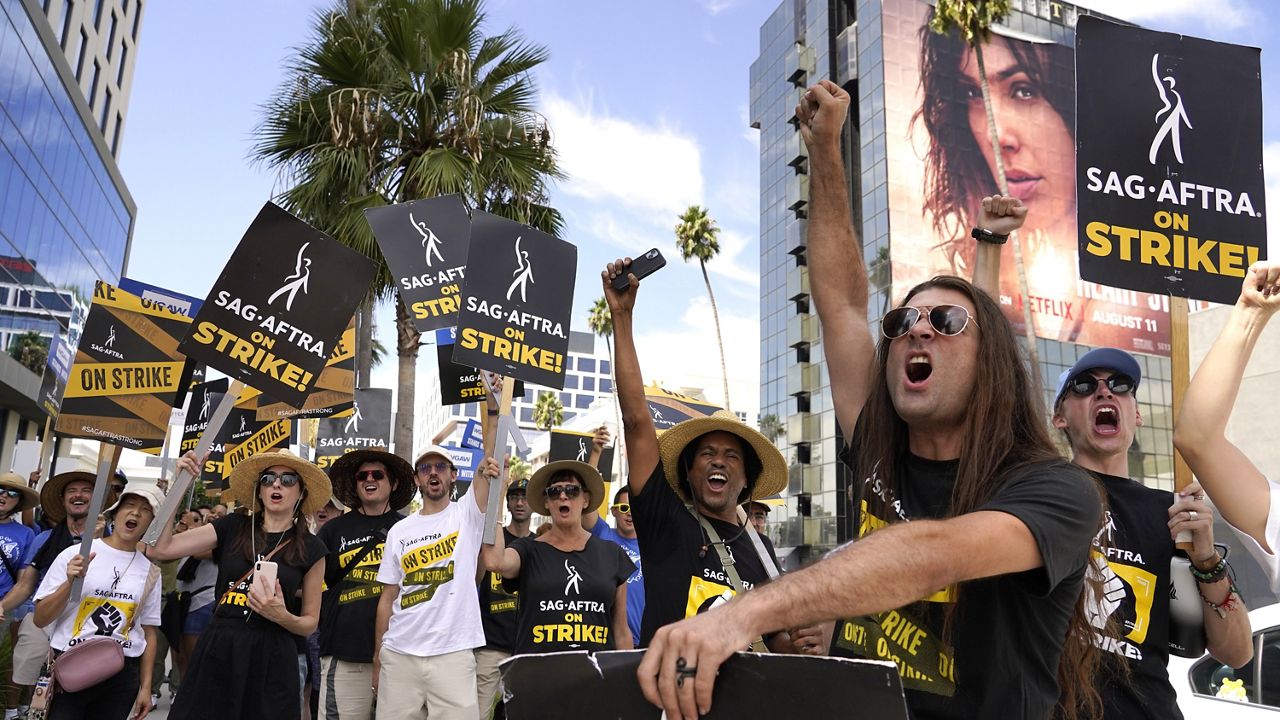After a full day of bargaining Monday, the union representing 160,000 actors will meet with Hollywood studio executives again on Wednesday to resolve a strike that is now in its third month.
SAG-AFTRA members walked off the job July 14 demanding higher wages, better compensation from streaming services and protections against the use of artificial intelligence from the Alliance of Motion Picture and Television Producers.
Until this week, the two groups had not had any official talks since July, when SAG-AFTRA President Fran Drescher derided the AMPTP studios for pleading poverty while paying hundreds of millions of dollars to their CEOs and announced the strike.
The AMPTP represents Amazon/MGM, Apple, Disney/ABC/Fox, NBCUniversal, Netflix, Paramount/CBS, Sony and Warner Bros. Discovery. Disney Chief Executive Bob Iger, Warner Bros. Discovery Chief Executive David Zaslav, Netflix Co-Chief Executive Ted Sarandos and NBCUniversal Studio Group Chairman Donna Langley met with SAG-AFTRA negotiators Monday.
The meeting took place as the Writers Guild of America held a ratification vote for the tentative deal it reached with the AMPTP last week after nearly five months of picketing. The WGA’s 11,500 members began striking May 2, demanding higher residual payments from streaming services, employment guarantees and AI protections.
The WGA deal with the AMPTP includes phased increases in minimum salaries that will increase 5% once the deal is ratified, followed by a 4% increase in May 2024 and a 3.5% increase in May 2025. The deal also includes improved pension contributions and health benefits, as well as restrictions on AI that bar studios from using the technology to write or rewrite literary material.
The writers also won a new residual formula for streaming services that boosts pay when a program is successful and employment guarantees for TV series writers.
The writers’ deal is largely seen as a template for the actors as they resume negotiations with the AMPTP Monday since both unions are seeking similar concessions from the major studios.
As a result of the twin labor strikes, the entertainment industry has come to a standstill. While late-night talk shows resumed Monday with the end of the writers’ strike, production on most major scripted television and feature films can only resume when the actors also reach a deal.



